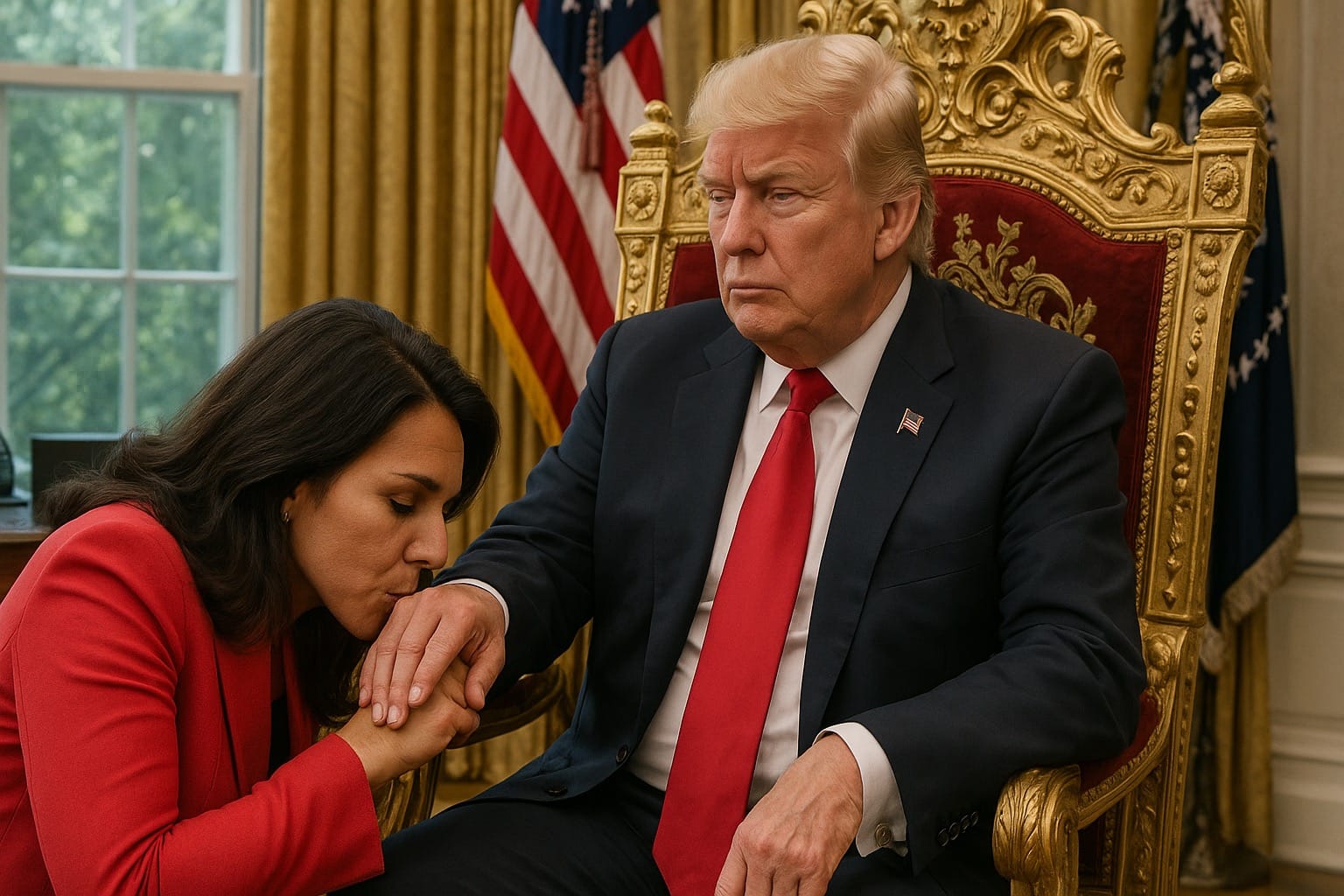Gabbard flip flopped again.

Tulsi Gabbard’s latest reversal on Iran’s nuclear capabilities is just the latest in a long pattern of inconsistency and opportunism that should deeply concern anyone who values integrity in national security leadership. Just months ago, Gabbard testified before Congress that Iran was not actively building a nuclear weapon, aligning her position with the official U.S. intelligence consensus at the time. Yet, after Donald Trump publicly rebuked her and insisted Iran was “very close” to a bomb, Gabbard abruptly shifted her stance, now warning that Iran could develop a nuclear weapon “within weeks”. This kind of whiplash is not the mark of a principled leader—it’s the behavior of someone who bends to political pressure rather than standing by evidence and expert analysis.
Gabbard’s lack of relevant intelligence experience only magnifies the danger of her flip-flopping. Despite her military service and time in Congress, she has no formal background in intelligence operations or analysis—a fact that made her nomination as Director of National Intelligence highly controversial. During her confirmation, senators from both parties raised concerns about her limited experience, her controversial statements on figures like Edward Snowden and Vladimir Putin, and her willingness to meet with adversaries such as Bashar al-Assad. The intelligence community requires steady, informed leadership—not someone learning on the job while managing a $70 billion budget and overseeing 18 agencies.
This sudden reversal after Trump’s criticism is a clear sign of weakness, not leadership. Instead of defending her own testimony or the assessments of career intelligence professionals, Gabbard chose to align herself with Trump’s narrative almost overnight.
This is not the first time she’s shifted positions for political expediency: Gabbard has swung from supporting Bernie Sanders and progressive causes to endorsing Trump and joining the Republican Party, all while claiming to stand for “integrity” in politics. Such behavior exposes a pattern of chasing political favor rather than demonstrating independent judgment.
Ultimately, Gabbard’s record reveals a troubling lack of integrity. She has repeatedly changed her positions to suit the prevailing winds—whether on foreign policy, party affiliation, or now, the gravest matters of war and peace. At a time when the U.S. faces complex security threats, the country needs leaders who are consistent, experienced, and principled. Gabbard’s inconsistency, lack of expertise, and willingness to reverse herself under pressure make her an unreliable steward of America’s intelligence and national security.
